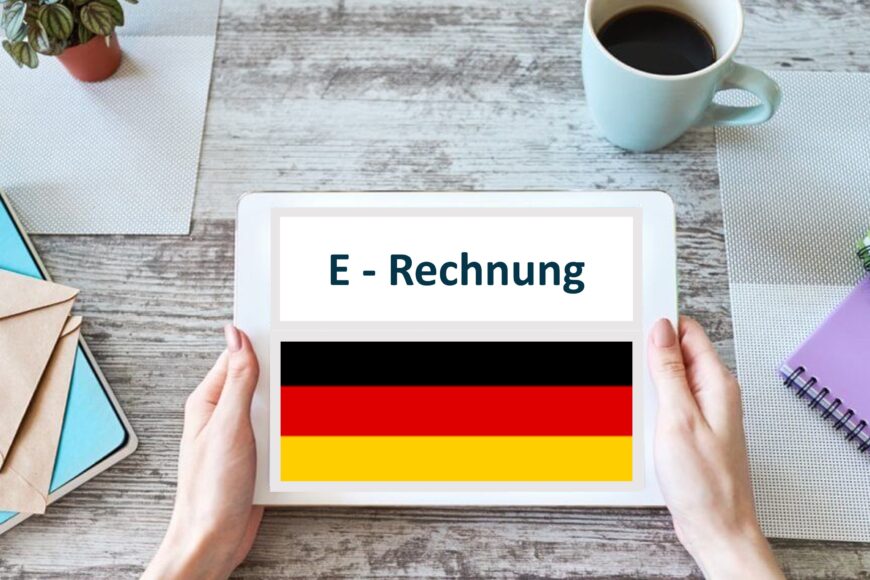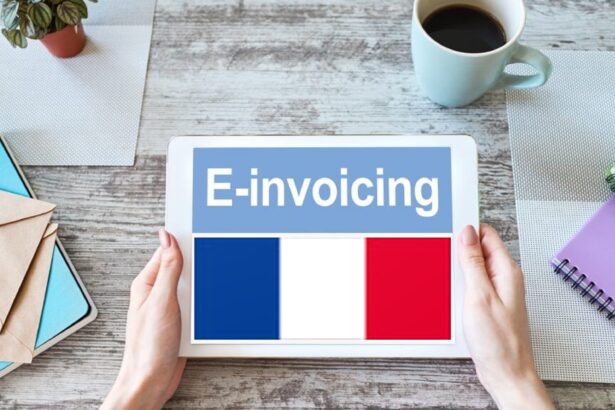E-invoicing in Germany : new obligation for resident companies

The implementation of the electronic invoicing in Germany is planned starting from January 2025, following a precise timetable. In this context, the Federal Ministry of Finance has recently prepared the draft of an official letter addressed for consultation to the tax authorities of the 16 federal states.
Given the importance of the measure, this document was made public on last June 13.
Its final publication will expectedly take place during the fourth quarter of 2024.
The document in question specifies the terms of implementation of the German e-invoicing, called E-Rechnung.
E-Rechnung’s scope and timetable
As a reminder, only B2B operations between resident companies will fall within the scope of the E-Rechnung.
The exception will be granted to transactions exempt from VAT according to points 8 to 29 of § 4 of the German VAT law, as well as to low value invoices up to €250 including tax and to passenger transport tickets.
Implementation:
- The obligation of the electronic reception of the E-Rechnung will be effective from 01/01/2025;
- The electronic transmission of the E-Rechnung will become mandatory starting from 01/01/2027, or from 01/01/2028 for companies with an annual turnover of less than or equal to €800,000.
The concept of e-invoices will now be limited to electronically structured or hybrid invoices, which will be transmitted and received electronically and which allow their electronic processing. This process must guarantee the authenticity of the origin, the integrity of the content and the mechanical readability of the invoice, human readability not being a mandatory criterion.
E-Rechnung formats
The future E-Rechnung leaves a certain freedom to taxpayers who will be able to choose between different formats (EDI, XML, XStandard, ZUGFeRD, FatturaPA, Factur-X):
- European formats meeting the standards of the Directive 2014/55/EU of April 16, 2014;
- national formats meeting the German standard EN 16931;
- formats agreed between the issuer and the recipient of the invoice, provided that the mandatory data can be electronically extracted.
E-Rechnung rules
The rules for sending electronic invoices will also be very flexible in Germany. The transmission of the E-Rechnung will be possible by email, by a structured message or by downloading from a client platform, but not via an electronic medium such as USB key or others. It will be allowed to use an intermediary for the issuance and transmission of the E-Rechnung.
The e-invoicing obligation will also be extended to contracts with successive execution and to tacitly renewable invoicing. As for corrections of electronic invoices, they must meet the same requirements as the initial e-invoices.
The mandatory information on invoices does not change for the E-Rechnung. The obligation to issue an invoice within 6 months after the completion of a service also remains in place.
The VAT deduction on transactions subject to e-invoicing will be limited to a compliant E-Rechnung. However, VAT deduction may be granted to other invoice formats if the tax authorities have all the data justifying the right to deduction.
E-reporting
The e-reporting measures for transactions subject to e-invoicing will subsequently be introduced into the German Tax law.
We remain at your disposal for any further information and questions : contact@btobnice.com





